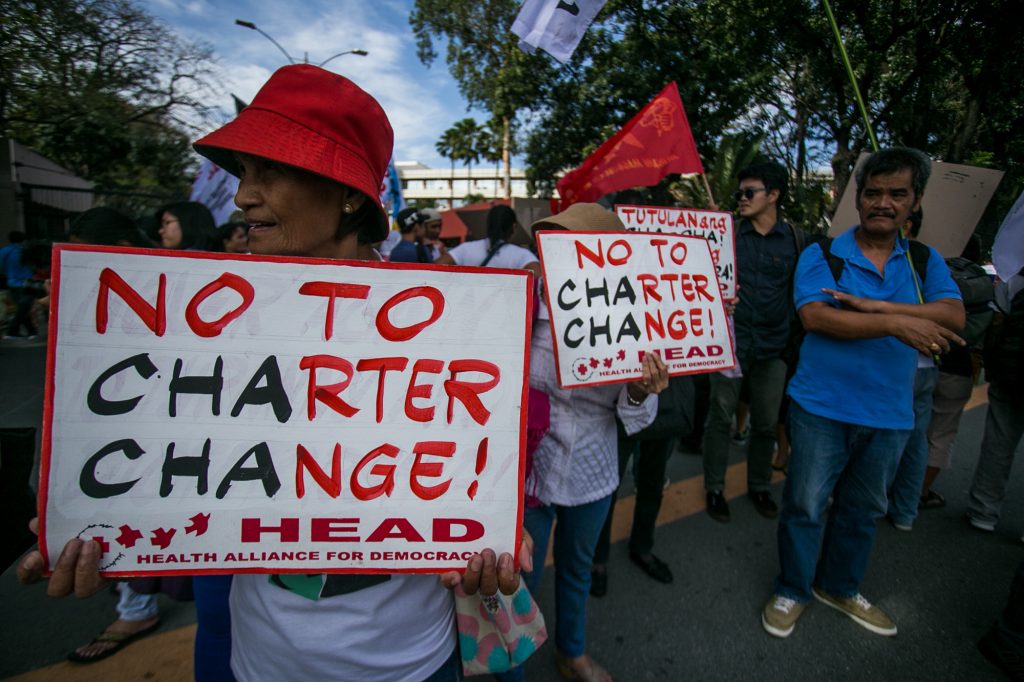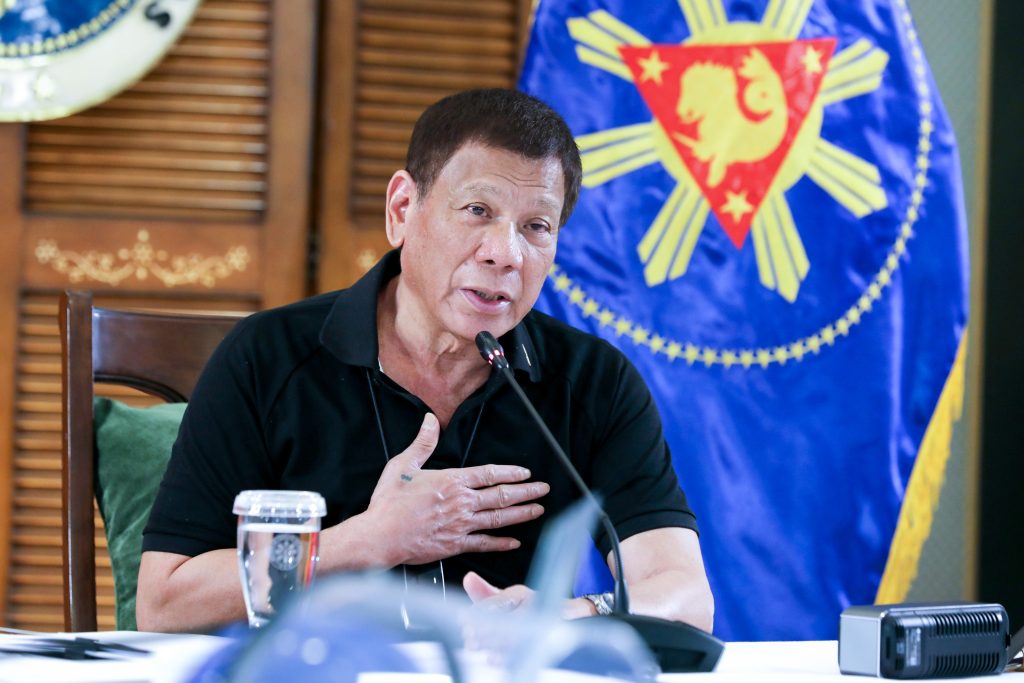
Catholic church leaders in the Philippines warned against a proposal for President Rodrigo Duterte to set up a “revolutionary government” to hasten amendments to the country’s Constitution.
A group of the president’s supporters said a “revolutionary government” can fast-track the process of charter change.
The group said a constitutional convention or a constituent assembly, which are the legal modes to changing the Constitution, are not anymore viable due to the lack of time.
President Duterte is set to finish his term in 2022.
In a gathering on Saturday, August 22, the group called on the president to lead the “revolutionary government,” citing the need to heal “all the ills of our society.”
Catholic church leaders, however, said the move is “self-serving,” especially in the midst of the coronavirus pandemic.
“This self-serving plan of ‘revolutionary government’ will just create chaos and mistrust,” said Bishop Ruperto Santos of Balanga.
He said the call was an “open admittance that the present government is a total failure.”
“They want to change the government just to install the same government officials…. It is just like the maxim ‘same dog different collar,’” said the bishop.
He said the proposed “revolutionary government” will only add “misery” to the people, adding that the the government should focus its attention to alleviate the suffering of the poor.
Bishop Arturo Bastes, retired prelate of Sorsogon, warned that “something worst” might happen if the plan would be implemented.
“We Filipinos have already experienced bitterly a dictatorship. If this plan is pushed through, Filipinos will get impatient and something worse might happen,” he said.
Bishop Teodoro Bacani, retired prelate of Novaliches, said those calling for a “revolutionary government” are “crazy.”
Bishop Broderick Pabillo, apostolic administrator of the Archdiocese of Manila, said the move is a “betrayal” of the Constitution and “is not right.”
He said there is no reason to do it because “it is not just. It is immoral. It is seditious.”
Archbishop Martin Jumoad of Ozamiz noted that while “the government is still functioning.” He said democracy is “still the option even in this moment when there are varied opinions being aired.”
“Let us not contribute to the sinking of the boat of the government even if we are sailing in rough seas,” he said.
The Mindanao prelate challenged President Duterte to “clean” his Cabinet and “terminate [officials] if they are found to be corrupt.”
“The same is true with those officials in other agencies who are suspect of illegal activities,” said Archbishop Jumoad.

Filipinos urged to be ‘more vigilant’
Caritas Philippines, the social action arm of the Catholic bishops’ conference, called on Filipinos to be “more vigilant” and make sure that “deceiving plots” will be “closely scrutinized.”
“This is one of the theatrics they are playing that we don’t need right now from the president and his supporters,” said Bishop Jose Colin Bagaforo, national director of Caritas Philippines.
“Not only that it is inciting to sedition, it is at best will ruin the government,” he said.
The bishop echoed the statement of the Integrated Bar of the Philippines, which said that a “revolutionary government” has “no legal, factual, practical or moral basis under the present circumstances.”
The Integrated Bar of the Philippines on Sunday, August 23, said the revived calls for a “revolutionary government” should be “discouraged and denounced.”
“A revolutionary government is repugnant to constitutionalism,” said lawyer Domingo Egon Cayosa, president of the Philippine lawyers organization.
In his statement, Bishop Bagaforo said the move “is only a plot so the allies of the president or himself can stay in power.”
The prelate warned the public against “misinformation,” saying that “fake news” should not deceive people into believing that the country “is such in turmoil.”
He said the government should instead address “pressing problems” and be “more honest, accountable, efficient, and welcome critical public discourse.”
“Declaring a revolutionary government will only bring chaos to an already beleaguered administration,” read the Caritas Philippines statement.
“It will not solve the problems we are facing but instead use the Filipino people as pawns to justify vested interests,” it added.

Not palace’s priority
The presidential palace has distanced itself from the call, saying the administration of President Duterte is busy responding to the effects of the coronavirus pandemic.
“The call to establish a revolutionary government came from a private group and the organizers are free to publicly express their opinion,” said government spokesman Harry Roque.
He said the focus of the government now is “the gradual opening of the economy while safeguarding the people who are working (or) going back to work amid the pandemic.”
President Duterte first raised the idea of declaring a “revolutionary government” to address the country’s problems in 2017.
He threatened to establish a “revolutionary government” and to declare all state posts vacant if the Philippines plunges into “chaos” because of alleged attempts to destabilize the government.
He later clarified that he would make such a declaration if “things go out of control” and if the administration is at risk of being overthrown violently.
In 2019, Duterte raised the possibility of declaring a “revolutionary war” after opposition senator Franklin Drilon appealed to the administration to be careful in reviewing government contracts.
The presidential palace, however, later claimed that the president’s pronouncement was an “exasperated expression” against “a series of acts committed against the people.”
The shift to a federal type of government is one of the campaign promises of Duterte who claimed it would spur development in the rural areas.
Source: Licas Philippines
0 Comments